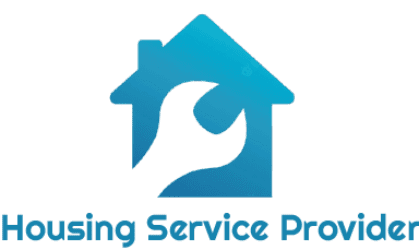Loan Require a Home Inspection ? A conventional loan does not inherently require a home inspection. However, depending on the lender’s requirements, a home inspection may be necessary before engaging in the loan process.
This inspection assesses the property’s condition, identifying any issues that could affect its value or pose safety concerns.
Understanding Conventional Loans
When it comes to purchasing a home, understanding the different types of loans available to you is crucial. One popular option is a conventional loan, which is a mortgage loan that is not insured or guaranteed by the government. In this article, we will delve into the definition of a conventional loan as well as its key characteristics and eligibility requirements.
A conventional loan is a type of mortgage loan that is provided by a private lender, such as a bank or credit union, without the backing of a government agency. Unlike government-backed loans, such as FHA loans or VA loans, conventional loans are not insured or guaranteed by the federal government.
Key Characteristics And Eligibility Requirements
To better understand conventional loans, let’s take a look at their key characteristics and eligibility requirements:
1. Down Payment:
One notable characteristic of a conventional loan is that it typically requires a higher down payment compared to government-backed loans. While government loans may require a down payment as low as 3.5% or even 0% in some cases, conventional lenders often expect a down payment of at least 5% to 20% of the home’s purchase price. The exact amount will depend on various factors, including the borrower’s creditworthiness and the lender’s requirements.
2. Credit Score:
Another important eligibility requirement for conventional loans is a good credit score. Lenders prefer borrowers to have a credit score of at least 620 or higher to qualify for a conventional loan. A higher credit score may result in better interest rates and loan terms, so it’s essential to maintain a healthy credit score before applying for a conventional loan.
3. Private Mortgage Insurance (PMI):
In some cases, borrowers who put less than 20% down on a conventional loan may be required to pay for private mortgage insurance (PMI). This insurance protects the lender in case the borrower defaults on the loan. PMI adds an extra cost to the monthly mortgage payment, so it’s important to consider this when budgeting for a conventional loan.
4. Loan Limits:
Unlike some government-backed loans, conventional loans do not have specific loan limits set by the government. However, lenders often have their own limits based on factors such as the borrower’s creditworthiness and the local real estate market. It’s essential to check with individual lenders to understand their specific loan limits for conventional loans.
Keep in mind that while conventional loans have stricter requirements compared to government-backed loans, they also offer some advantages. For example, conventional loans may have more flexibility in terms of property types and fewer restrictions when it comes to sellers’ concessions. Understanding the definition and key characteristics of a conventional loan will help you make an informed decision when considering this type of mortgage loan.
The Role Of Home Inspections In The Loan Process
When applying for a conventional loan to purchase a property, many buyers wonder if a home inspection is required. Understanding the role of home inspections in the loan process is crucial for both buyers and lenders. Not only do these inspections provide valuable information about the condition of the property, but they also play a vital role in protecting the interests of both parties involved.
Importance Of Home Inspections
Home inspections are an essential step in the home buying process, and their significance cannot be overstated. Whether you are a buyer or a lender, a thorough home inspection can reveal potential issues that may affect the value or safety of the property. From structural problems to electrical or plumbing deficiencies, an inspection acts as a safeguard against unexpected and costly repairs down the line. It provides valuable insights into the overall condition of the property and helps buyers make informed decisions.
How Inspections Protect Buyers And Lenders
Inspections benefit both buyers and lenders by ensuring transparency and minimizing risks. For buyers, a comprehensive inspection report empowers them to negotiate repairs or request a price reduction if significant issues are found. It enables them to make an informed decision about the purchase and avoid unforeseen expenses post-closing. On the other hand, lenders are interested in protecting their investment. They rely on inspections to assess the property’s condition and make sure it meets the required standards. By verifying the property’s value and identifying potential risks, lenders can mitigate their exposure and make informed lending decisions.
Furthermore, home inspections provide an additional layer of protection through contingencies in purchase contracts. These contingencies allow buyers to back out of the contract or negotiate repairs if the inspection reveals significant defects. They provide buyers with an opportunity to safeguard their investment and ensure they are not left with unexpected financial burdens.
In Summary
In summary, home inspections play a vital role in the loan process when applying for a conventional loan. They are crucial for both buyers and lenders to protect their interests and minimize risks. By providing valuable information about the property’s condition, inspections empower buyers to make informed decisions and negotiate repairs or price adjustments. Lenders rely on inspections to assess the property’s value and mitigate their exposure, ensuring a sound lending decision. Overall, home inspections provide transparency, peace of mind, and protection for all parties involved in the loan process.
Home Inspection Requirements For Conventional Loans
When purchasing a home with a conventional loan, it’s essential to understand the home inspection requirements. While many buyers assume that a conventional loan does not require a home inspection, this is not entirely accurate. Home inspections play a critical role in ensuring the property’s condition and identifying any potential issues that may affect the loan’s approval process.
Overview Of Appraisal Vs. Home Inspection
Before diving into the specific criteria for a home inspection in conventional loans, let’s briefly differentiate between an appraisal and a home inspection.
An appraisal is an evaluation conducted by a professional appraiser to determine the property’s market value. The appraiser assesses the home’s condition, location, and comparable properties to provide an unbiased opinion on its value.
On the other hand, a home inspection is a comprehensive assessment of a property’s structural integrity and overall condition. A qualified home inspector inspects the home’s major systems, including the plumbing, electrical, heating, and cooling, to identify any existing or potential issues that could impact its safety or habitability.
Specific Criteria For Home Inspection In Conventional Loans
While conventional loans do not explicitly require a home inspection, lenders often request one to ascertain the property’s condition and identify any potential hazards. The specific criteria for a home inspection in conventional loans typically include:
- Structural Integrity: The home inspector evaluates the foundation, walls, roof, and other structural components to ensure there are no major issues that could affect the property’s stability.
- Heating, Ventilation, and Air Conditioning (HVAC) Systems: The inspection includes an assessment of the HVAC systems to ensure they are functioning properly and meet the necessary safety standards.
- Plumbing: The home inspector examines the plumbing system for any leaks, damaged pipes, or improper installations that could lead to water damage or compromised water supply.
- Electrical System: The inspection covers the electrical wiring, outlets, and panels to identify any outdated or hazardous electrical components that may require immediate attention.
- Roofing: The home inspector checks the roof for signs of damage, such as leaks or missing shingles, to determine if any repairs or replacements are necessary.
- Appliances and Systems: The inspection may also include a review of the effectiveness and functionality of various appliances, such as the dishwasher, oven, or garage door opener.
- Other Potential Concerns: The home inspector may address any safety hazards, such as the presence of lead-based paint, asbestos, or mold, that could pose health risks.
Although a conventional loan may not require a home inspection, it is highly recommended for buyers to request one. Not only does it provide peace of mind, but it also enables potential issues to be identified early on, giving buyers considerable leverage in negotiating repairs or price adjustments.
Ultimately, conducting thorough due diligence, including a comprehensive home inspection, helps ensure that the home meets the buyer’s expectations and safeguards their long-term investment.

Credit: themortgagereports.com
Appraisal Vs. Home Inspection: Key Differences
When purchasing a property with a conventional loan, it’s essential to understand the key differences between an appraisal and a home inspection. While both processes play crucial roles in the homebuying process, they serve different purposes and objectives. Knowing what each process entails can help you make informed decisions and ensure a smooth homebuying experience.
Different Purposes And Objectives
Before delving into the details, let’s clarify the core differences in purposes and objectives between an appraisal and a home inspection. While an appraisal is primarily for the lender’s benefit, a home inspection is solely for the buyer.
An appraisal is performed by a trained professional hired by the lender to determine the property’s value. The main objective is to protect the lender’s interests and ensure the loan amount aligns with the property’s market value. The appraiser considers factors such as location, condition, recent sales, and comparable properties to arrive at an accurate valuation.
In contrast, a home inspection is a comprehensive examination of the property’s condition performed by a certified home inspector. The main goal is to identify any problems, defects, or potential safety hazards that may impact the buyer’s decision or the property’s value. The home inspector thoroughly assesses the structure, mechanical systems, plumbing, electrical wiring, and other essential components of the home.
What Each Process Entails
Now that we understand the core differences, let’s explore what each process entails in more detail.
Appraisal
Process: An appraiser will visit the property and conduct an exterior and interior evaluation. They will assess various factors such as the property’s size, layout, quality of construction, amenities, and recent renovations. Additionally, the appraiser will compare the property to similar homes that have recently sold in the area, considering aspects like location, lot size, and condition.
Outcome: The appraiser compiles a detailed report with an estimated property value, supported by facts, data, and comparable sales called “comps.” This report is then used by the lender to determine the loan amount.
Home Inspection
Process: A certified home inspector conducts a thorough evaluation of the property. They will inspect both the interior and exterior, checking for any potential issues or concerns. This includes examining the foundation, roof, plumbing, electrical systems, HVAC, and more. The inspector will also review the property for safety hazards, code violations, or structural problems that could affect the overall safety and integrity of the home.
Outcome: Following the inspection, the home inspector provides a detailed report listing any findings, including material defects, safety issues, or maintenance concerns. This report allows the buyer to make informed decisions, negotiate repairs, or potentially renegotiate the purchase price.
Understanding the differences between an appraisal and a home inspection is crucial when investing in a property with a conventional loan. While the appraisal protects the lender’s interests by assessing the property’s market value, the home inspection safeguards the buyer’s investment by identifying potential issues or risks. By acknowledging the distinct purposes and processes associated with each step, you can navigate the homebuying process with confidence and peace of mind.
Benefits Of Conducting A Home Inspection For A Conventional Loan
Getting a conventional loan for your dream home is an exciting step in your homeownership journey. However, before finalizing the deal, it’s essential to conduct a thorough home inspection. While it may seem like an additional step, a home inspection can save you from potential headaches and unforeseen expenses down the road. In this post, we’ll delve into the benefits of conducting a home inspection for a conventional loan and why it is a crucial aspect of the homebuying process.
Identifying Potential Issues And Hidden Expenses
One of the key advantages of conducting a home inspection for a conventional loan is the ability to identify potential issues and hidden expenses. A trained and experienced home inspector will thoroughly examine the property, including its structure, foundation, electrical systems, plumbing, and more. Through their sharp eye and expertise, they can spot underlying problems that may not be visible to an untrained eye.
By identifying these issues early on, you can get a clear understanding of the condition of the property and the potential expenses that may arise in the future. From faulty wiring to structural damage, a comprehensive home inspection report will highlight any crucial repairs or maintenance work required. Armed with this knowledge, you can make an informed decision about whether to proceed with the purchase or negotiate terms based on the estimated repairs and associated costs.
Negotiating Repairs And Price Adjustments
Another significant benefit of conducting a home inspection for a conventional loan is the leverage it provides during negotiations. Armed with a comprehensive inspection report, you can enter into negotiations with the seller to address any repairs needed or negotiate a price adjustment based on the estimated cost of repairs.
The inspection report acts as tangible evidence, enabling you to make valid requests for repairs or amendments to the purchase price. Depending on the severity of the issues uncovered during the inspection, you can negotiate a fair deal that reflects the actual condition of the property. This can potentially save you from incurring significant out-of-pocket expenses down the line.
Remember, the goal of negotiation isn’t just to lower the purchase price but to ensure that the property is in a condition that meets your expectations and standards. By leveraging the home inspection report, you can address any concerns beforehand and reach an agreement that satisfies both parties.
In conclusion, conducting a home inspection for a conventional loan is a crucial step in the homebuying process. It helps you identify potential issues and hidden expenses, empowering you to make informed decisions and negotiate repairs or price adjustments. By investing a little time and money in a home inspection, you can ensure a smoother and more confident purchase, giving you peace of mind in your new home.
Frequently Asked Questions On Does A Conventional Loan Require A Home Inspection
What Type Of Inspection Is Required For A Conventional Loan?
For a conventional loan, a basic home inspection is typically required. This inspection assesses the condition of the property, including its structure, systems, and overall safety. The purpose is to ensure that the property meets the lender’s standards and is a sound investment for the borrower.
What Do Appraisers Look For On A Conventional Loan?
Appraisers on conventional loans assess the property’s market value, check its condition, review comparable sales, and ensure it meets certain criteria such as safety, functionality, and proper maintenance. They aim to determine if the property is worth the loan amount requested.
What Do I Need For A Conventional Loan?
To qualify for a conventional loan, you’ll need a good credit score, a down payment (typically 5% to 20% of the home’s price), stable employment, and a low debt-to-income ratio. Additionally, lenders require documents such as pay stubs, bank statements, and tax returns to verify your financial stability.
What Is The Lowest Down Payment For A Conventional Loan?
The minimum down payment for a conventional loan usually starts at 3%, but it may vary depending on the lender and borrower’s creditworthiness.
Conclusion
While a conventional loan does not typically require a home inspection, it is still highly recommended to ensure the property is in good condition before making such a significant investment. A thorough inspection can help identify any potential issues or hidden problems that may arise later on.
By being proactive and taking the necessary steps to safeguard your investment, you can make a more informed decision and avoid any future surprises. Don’t overlook the importance of a home inspection, as it serves to protect both the buyer and the lender.




